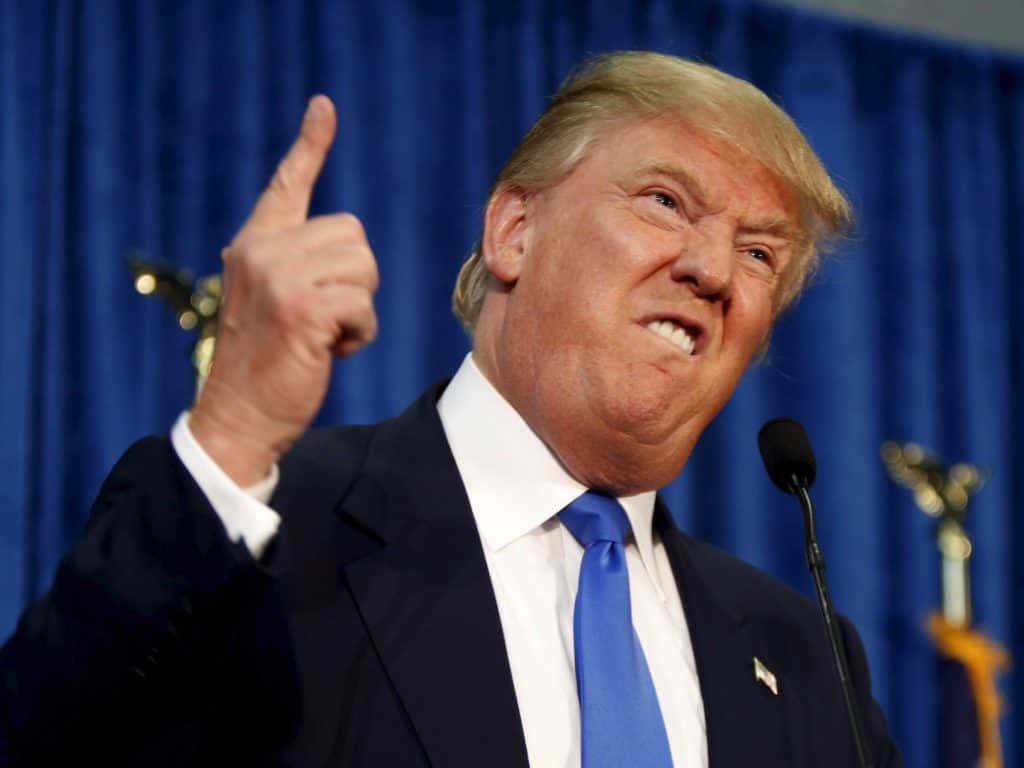I recently watched on Netflix a short series called Donald Trump – The American Dream. It is a biopic of Trump’s life until he decided to run for President.
Watching it makes it clear that Trump’s characteristics as a human being have been obvious for decades. His behaviour in business shows a man who is convinced that his own intuitive instincts are the ones to be followed.
He ignored expert advice on his business dealings (resulting in the bankruptcy of the Taj Mahal in Atlantic City and grossly overpaying for the acquisition of the Plaza Hotel in New York City). He is a man obsessed with his own image and brand that he will do anything to burnish.
He has always been totally intolerant of criticism and of those who disagree with his decisions. His response is aggression.
He takes an ‘anything goes to achieve what I want’ approach – which can also be described as utterly amoral.
One particular vignette was instructive. His mother related how she gave both him and his brother sets of plastic building bricks to play with. Donald, though he had bricks of his own, asked his brother whether he could also have some of his to complete a structure.
His brother offered them without hesitation. When he tried to reclaim them, he found that Donald had glued all the bricks together so that his brother could not recover the ones he had lent.
Anyone who wants to understand Trump and his behaviour in office would do well to watch the series. And it is why one has to wonder about the publicity generated by the anonymous New York Times op-ed from a member of his administration.
In it Trump is accused of being amoral and “impetuous, adversarial, petty and ineffective”. None of that should come as a surprise to anyone who has bothered to watch the series.
But the constant attacks on Trump and his style of leadership, justified though they might be, now risk drowning out a much more important question. What is it with the state of America and the world that led the American people to hand Trump the keys to the White House (albeit without popular majority).
The so-called liberal elite have by and large been in charge since the end of the Second World War. They have determined and guided the political agenda for decades. And the result of that in the first quarter of the 21st century has been Donald Trump, the rise of populists and demagogues anywhere, and an aggressive and intolerant (on all sides) form of polarisation that is hard to recall in living memory. We have ended up here on their watch not on Trump’s – who has never before held public office.
In fact, as the TV biopic makes clear, Trump toyed with running for the presidency for decades but constantly said that he would only run when he thought that he could win. In that, at least, his intuitive instincts have not let him down.
Our biggest mistake would be to cast Trump and his ilk as the cause of all of this current mess rather than as a symptom of the persistent failure of policy over decades.
Are we really having enough public debate around that? No. The Left blames it all on the misguided nature of neoliberal ideology and want a return, through Corbyn or Sanders, to a socialism red in tooth and claw. The Right claim that we have simply not been neoliberal enough and the corrosive effects of excess welfare and insufficient deregulation have driven the population to distraction.
None of this can be glorified as constituting serious debate. Nor does it provide us with new ideas fit for the times.
Unless we all accept that, when things go wrong, the mirror is a more useful tool than the finger, then we are simply complicit in the blame shifting exercise at which the Trumps of this world excel. It is time for the liberal elite to engage in a loud, collective mea culpa, stop pointing fingers and get on with the job of re-thinking things from scratch.
But one has to wonder whether that will ever happen.






Where the US is concerned the ‘American Dream’ is all consuming, it seems to be an illusion.Those with the wealth pass it down to the family. Those without pass what they have (little) to their family. It maintains the status quo not the improvement of people. Over their and over here we should look in the mirror and say are we doing our best for others to improve ALL o.f us